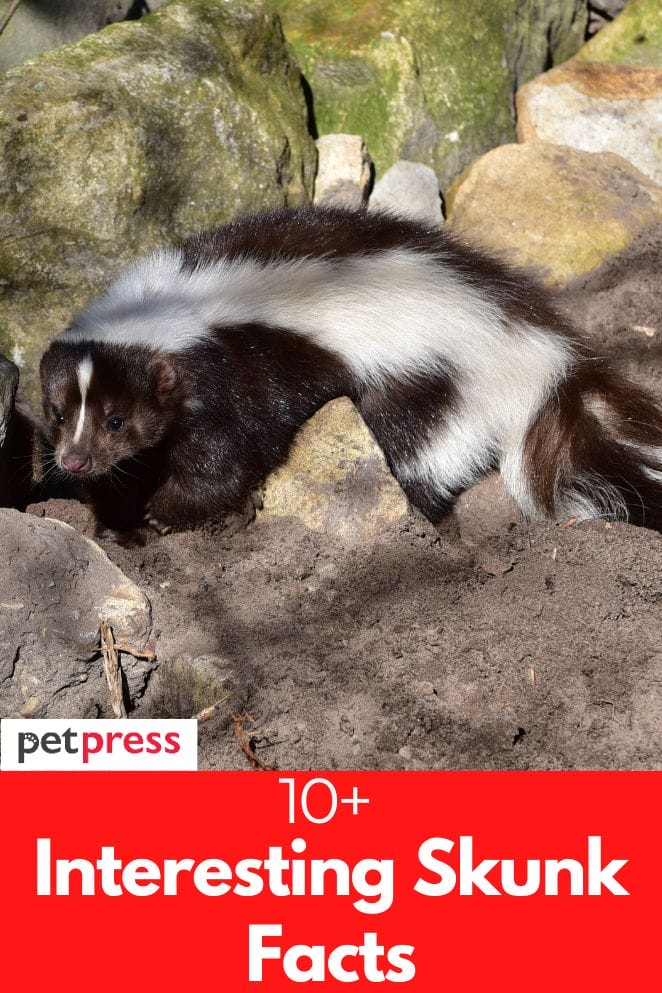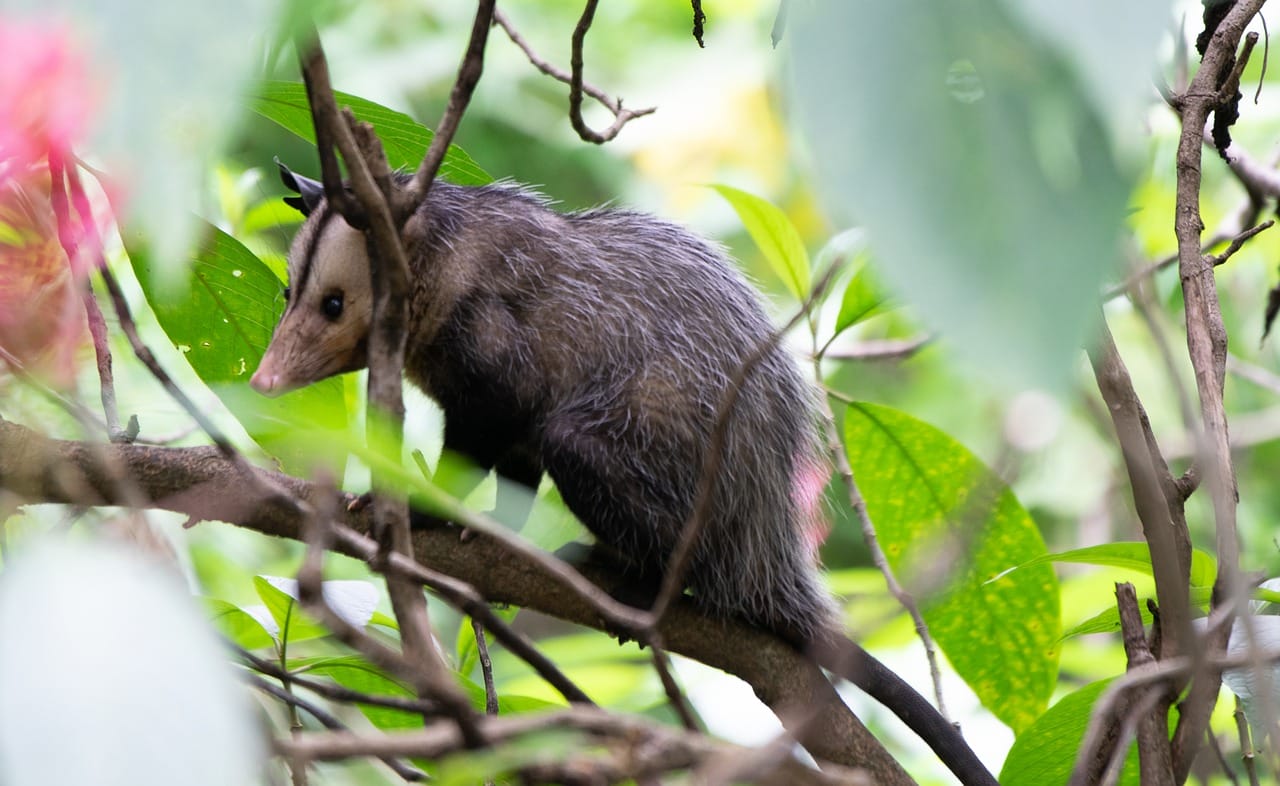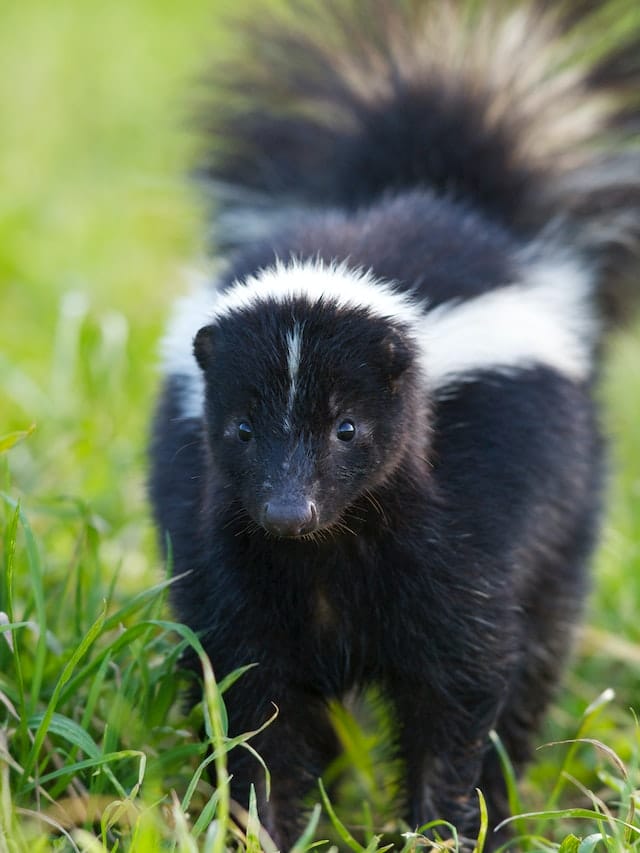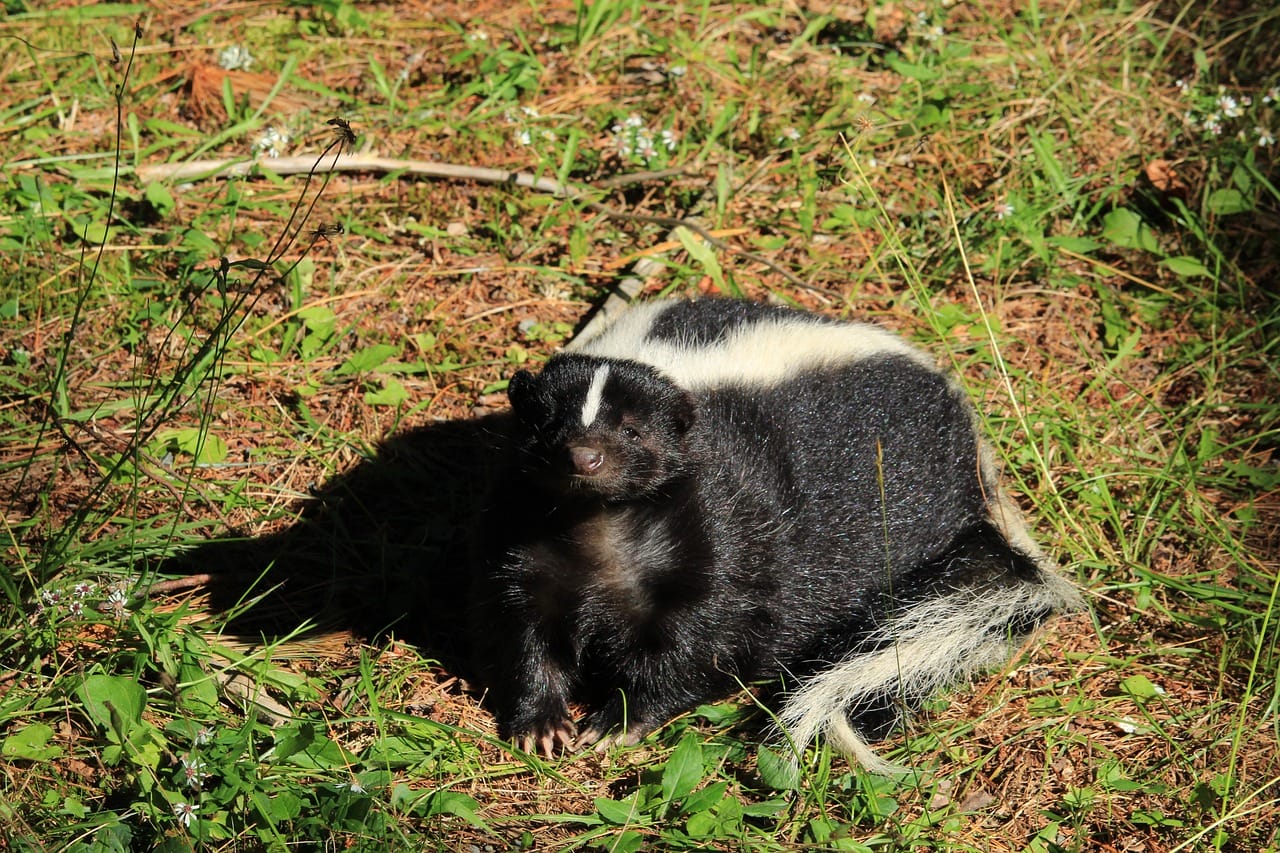
Skunks are one of the most interesting animals in the world.
With their distinctive markings, unique behaviors, and distinct smell, these mammals have intrigued people for centuries.
In addition to being an integral part of our environment, skunks also provide us with various fascinating facts about their lives and habits.
Let’s take a look at some of the most interesting skunk facts around.
Fact #1: Skunks Can Spray Five Times in a Row
Skunks possess a powerful defense mechanism in the form of their infamous spray. But did you know that they can actually spray five times in a row?
While it may seem like this would quickly deplete their supply, skunks have an impressive ability to regenerate their musk and be ready to go again after just 10 minutes or so.
This means that if a skunk has been threatened, it can repel an attacker multiple times before its supply is fully used up.
Amazingly enough, this spray can also shoot as far as 15 feet away from the skunk!
Fact #2: Skunks Are Nocturnal Animals

Skunks are nocturnal animals, meaning that they are active mainly at night.
They usually sleep during the day and come out to hunt for food or engage in other activities around dusk.
Skunks also have an excellent sense of hearing and smell, which help them to locate their prey even in complete darkness.
This allows them to remain active at night and stay safe from predators who are mostly diurnal.
As well as being nocturnal, skunks also tend to be crepuscular, meaning that they are most active during dawn and dusk.
Fact #3: Skunks Can Climb Trees
Contrary to popular belief, skunks are actually quite good climbers.
They have sharp claws that help them to gain purchase on tree trunks and branches, allowing them to climb up with relative ease.
This is an essential skill for skunks as they can use it to escape predators or reach food sources in the trees.
Skunks will also climb trees to locate a safe spot to build their dens or nests.
This is especially important for female skunks, who need to find a suitable area in which to give birth and raise their young.
Fact #4: Skunks Have a Variety of Predators
Skunks are not completely immune to predators, despite their impressive defense mechanisms.
In fact, they face various threats in the wild, including foxes, coyotes, bears, and even some birds of prey.
These animals are all skilled hunters and can easily overpower a skunk, even if it has sprayed its musk.
This is why skunks need to remain alert and stay aware of their surroundings, as this may be the only thing that saves them from becoming prey.
Fact #5: Skunks Have Adapted to Human Environments
As humans continue to encroach on skunk habitats, these animals are forced to adapt and find ways to survive in human-dominated environments.
To do this, skunks have developed clever strategies for obtaining food, finding shelter, and avoiding potential predators.
For example, they’ve been known to raid bird feeders or garbage cans in search of food.
Skunks also have a keen sense of smell, which helps them locate potential hiding spots and dens. With these adaptations, skunks are able to thrive even in urban settings without ever having to come into contact with humans.
- Related post: How to Name Your Pet Skunk
- Related post: How to Help Your Dogs After Being Sprayed by Skunk
Fact #6: Skunks Play an Important Role in the Ecosystem

Skunks play a vital role in their local ecosystems. They consume a variety of insects and rodents, which helps to keep population numbers in check.
This helps to reduce crop damage and improve the overall health of the environment.
Skunks also help to spread seeds and disperse important nutrients, which allows for the natural regeneration of plants and forests.
Finally, skunks can act as a form of pest control by eating insects and small animals that could otherwise become pests to humans.
As such, skunks play an important part in maintaining the balance of nature.
Fact #7: Skunks Have Several Interesting Behaviors
Skunks have a variety of interesting behaviors that help them to survive.
For example, they are known for their habit of marking their territory with scent glands located on their hind legs.
Skunks also emit loud vocalizations when threatened or alarmed, which can be used to scare away predators.
Additionally, skunks will often back up and stamp their feet before spraying their musk as a way of warning against potential threats.
These behaviors help skunks to remain safe in the wild and keep them from becoming an easy targets for predators.
Fact #8: Skunks Are Uniquely Adapted To Survive
Skunks have some of the most impressive adaptations of any mammal.
They possess powerful scent glands capable of producing an odor that is difficult to remove and is detectable from long distances.
Skunks also have sharp claws for climbing trees, which helps them to locate food sources or escape predators.
Finally, skunks have adapted behaviors such as stamping their feet and vocalizing to ward off potential threats.
All of these adaptations help skunks to survive in their natural environment, even in the face of numerous predators.
Fact #9: Skunks Are Social Animals
Skunks are actually quite social animals, contrary to popular belief.
They live in groups of around 20-40 individuals, and groups can become even larger if food is abundant.
These groups consist of related females and their offspring, as well as a few adult males.
Skunks are known to interact with each other, groom and play together when food is plentiful.
They also defend their territories from rival groups by using scent marks and vocalizations. This social behavior helps skunks maintain their bonds and ensures the health of their populations.
Fact #10: Skunks Are Intelligent Animals

Skunks are surprisingly intelligent animals. They have the cognitive abilities to remember certain behaviors and even recognize potential threats from a distance.
Additionally, skunks can learn how to solve complex problems in order to obtain food or avoid danger.
This intelligence helps them survive in a variety of environments and has even allowed them to adapt to living in close proximity to humans.
Skunks also have very good memories, which helps them remember where food sources are located or how to recognize potential predators.
This intelligence is one of the reasons skunks have been able to thrive for so long despite their numerous predators.
Fact #11: Skunks Are Found All Over The World
Skunks can be found in a variety of habitats all around the world.
They live on every continent except Antarctica and are most common in North America, although they can also be found in parts of South America, Europe, and Asia.
Skunks can survive in a wide range of climates, from deserts to forests, and they often live near human settlements due to the plentiful food sources.
Despite their strong scent glands, humans have done little to reduce skunk populations due to their importance in controlling insect and small animal populations.
Overall, skunks are an amazing animal species with a wide range of adaptations and behaviors that have allowed them to survive for thousands of years.
From their scent glands to their intelligence, skunks possess unique qualities that enable them to thrive in a variety of environments all around the world.
Thus, it is no surprise that these animals continue to captivate us with their resilience and resourcefulness.
Despite the strong smell they can produce, skunks are incredible creatures that deserve our admiration. They are truly remarkable animals!
- Does Cat Litter Melt Ice? The Complete Guide to Winter Safety - January 30, 2026
- Happy Tail Dogs: Understanding This Common Canine Condition - January 29, 2026
- How Cold Can Outdoor Cats Handle? Feline Winter Safety - January 27, 2026


GIPHY App Key not set. Please check settings